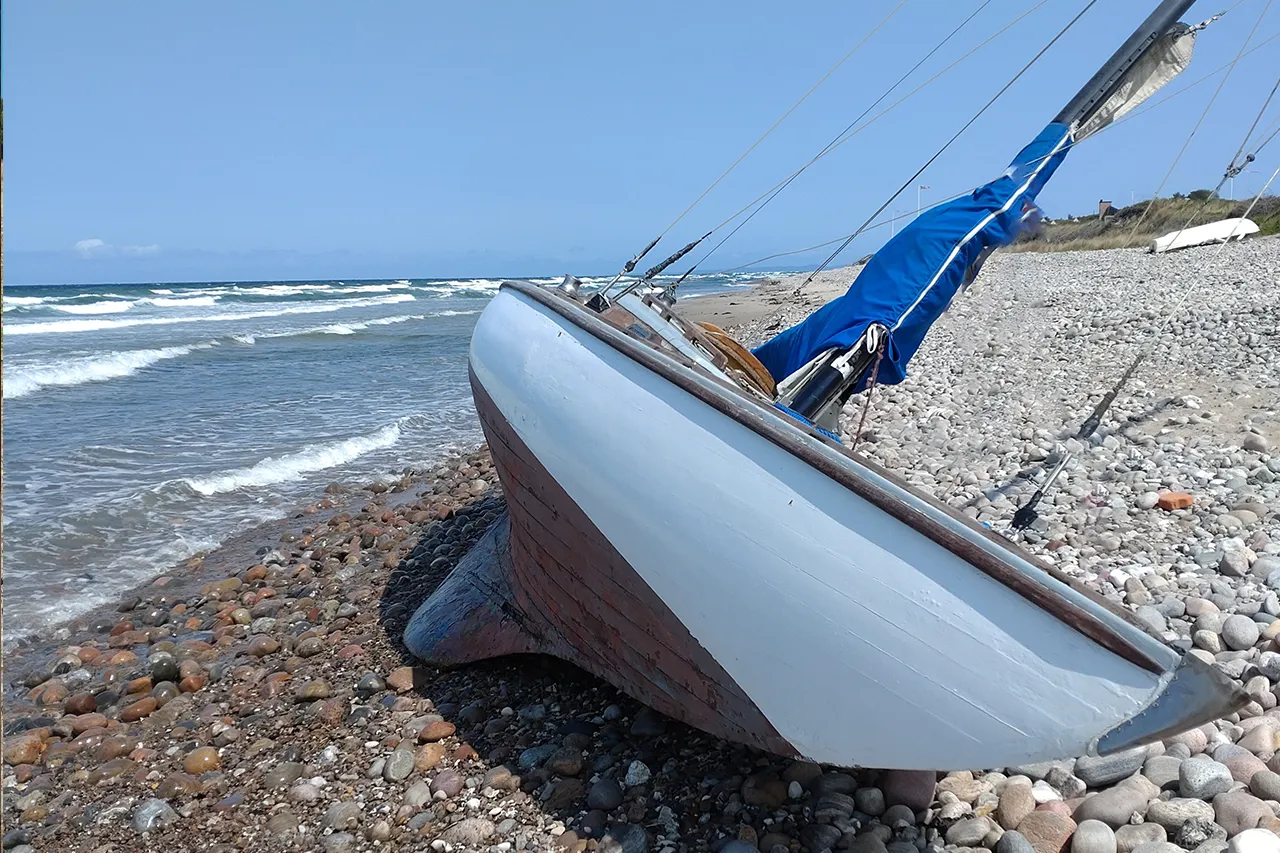What to do when your sailboat is grounded.

Getting rid of an old sailing boat that's grounded in your backyard or on your property can be a bit of a process, but here are some steps you can consider. For smaller sailing vessels like daysailers, to larger vessels like cutters, the process is similar:
- Assessment: First, assess the condition of the boat. Determine if it's salvageable or if it's beyond repair. If it's in good condition and you don't want to keep it, you might consider selling it or giving it away.
- Selling: If the boat is in decent shape, you can try to sell it. You can list it on websites like Craigslist, Facebook Marketplace, or specialized boating forums. Be sure to take clear photos and provide an accurate description.
- Donation: Another option is to donate the boat to a local sailing club, nonprofit organization, or a vocational school that might use it for training or educational purposes. Some organizations may even offer to pick up the boat for you.
- Scrap or Recycling: If the boat is in poor condition and cannot be repaired or reused, you may need to consider scrapping it. Contact a local boat salvage yard or recycling center that handles boats. They can often dismantle the boat and recycle or dispose of the materials properly.
- Local Regulations: Check with your local government or municipality to ensure you're following any regulations or requirements for disposing of boats. There may be rules about environmental concerns or permits needed for boat disposal.
- Dismantling: If you decide to dismantle the boat yourself, be prepared for a labor-intensive process. Remove any valuable or reusable parts (sails, hardware, etc.) and then begin taking the boat apart piece by piece. Be mindful of any hazardous materials such as fiberglass or toxic paints. Dispose of these materials properly.
- Hauling and Transportation: If you need to transport the boat to a disposal or recycling facility, you'll need a trailer and a vehicle capable of towing it. Make sure you have the necessary permits and equipment to safely move the boat.
- Professional Help: If you're unsure about any aspect of the disposal process, it's advisable to consult with professionals who specialize in boat disposal. They can guide you through the process and ensure it's done safely and legally.
- Dispose of Hazardous Materials: Be sure to handle any hazardous materials from the boat, such as fuel, oil, or chemicals, in accordance with local environmental regulations. These should be disposed of properly to avoid environmental harm.
- Documentation: Keep records of the disposal process, including any receipts, permits, or paperwork, to ensure you have a clear record of the boat's disposal.
Remember that the specific steps and options available to you may vary depending on your location, the boat's condition, and local regulations. It's essential to prioritize safety, environmental responsibility, and compliance with any applicable laws throughout the disposal process.

You don't have to do this yourself! Call the Pros!
We can take care of virtually any size sail vessel that had been stranded or run aground. You just read about how big and arduous process it is to try to handle it yourself, let the Pros at US Boat Removal do all the heavy lifting?
Read more about the different vessel types we can help remove.